By Ruben Lowman and Andrea Maestre
Driving along the Grand Strand recently has been a rather discomfiting experience, especially if you are a local.
There have been plenty of cars out at most times, but yet there aren’t very many places actually open for them to go to. Parking lots have now become dead zones, storefronts frozen to a more tranquil moment before the crisis erupted, hastily-erected signs flashing with the latest developments concerning COVID-19.
It feels a bit like riding through a ghost town, only if there were still a lot of people who lived there.
Over the past week Gov. Henry McMaster has issued three different executive orders, intended to align the state’s guidelines on preventing the spread of coronavirus more closely with the rest of the nation’s.
The orders have gradually increased the restrictions on individuals and businesses, as well as the penalties for not adhering to them. It culminated this Tuesday with a “home or work” order for the entire state of South Carolina, effective at 5 p.m.
This means the state is now under lockdown, excluding activities deemed essential, such as: accessing medical care or caring for or visiting a family member, picking up essential household items, going to church or attending religious services, travelling for legal issues, caring for pets or exercising.
Governor McMaster also mandated the closure of all businesses deemed non-essential on his previous executive order on April 3. These included: entertainment venues, such as night clubs, bowling alleys, putt-putt and golf courses, arcades, concert venues, theaters, tourist attractions, casinos and bingo halls; athletic facilities, such as fitness centers and gyms, spas, public swimming pools and public playground equipment; close-contact providers, including hair and nail salons, tattoo parlors, tanning salons and massage services.
To underline the seriousness of the mandatory orders the governor also instructed that a violation will result in a misdemeanor of 30 days in jail and/or a $100 fine for each day of violation.
As an area that revolves around the tourism industry, the coronavirus pandemic crisis has decimated the local economy. Many people in the area have been fired or laid off, seen their businesses forced to close temporarily or permanently or had to significantly reduce their normal level of volume and traffic.
It presents local residents who are likely out of work or school already with yet another perplexing issue. People have ample time on their hands, but a lot are facing a financial crunch and are now forced to stay home until the worst of this crisis is forecasted to be over. Experts have predicted that the virus’ peak in South Carolina will not be for another couple of weeks.
In response, representatives from the major hospitals in the area wanted to reassure residents that they are prepared to handle the crisis, even as it escalates, and have so far been able to weather the storm fairly well. McLeod Health, Grand Strand Medical Center and Tidelands Health have all made recent statements affirming their confidence in their abilities in treating patients and helping to combat COVID-19.
It also should be noted, the bravery and courage of the medical professionals on the frontlines deserves special commendation and praise.
Medical experts have stressed that continuing the social distancing and hygiene guidelines previously laid out will allow us to mitigate the damage being done by the virus, but warned that the worst is still to come.
U.S. Surgeon General Jerome Adams said this week is going to be the “hardest and the saddest” for most Americans’ lives. “This is going to be our Pearl Harbor moment, our 9/11 moment, only it’s going to be localized, it’s going to be happening all over the country and I want America to understand that. I want Americans to understand that as hard as this week is going to be, there is a light at the end of the tunnel, concluded Adams.”
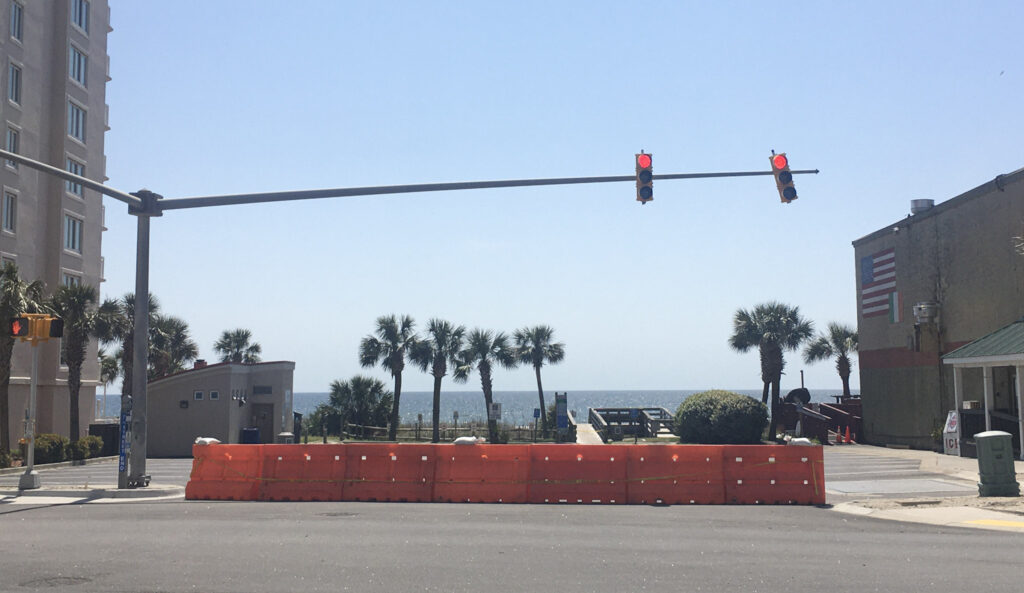
The 17th Avenue South beach access has been barricaded since last Friday, when they were all ordered closed by the governor.
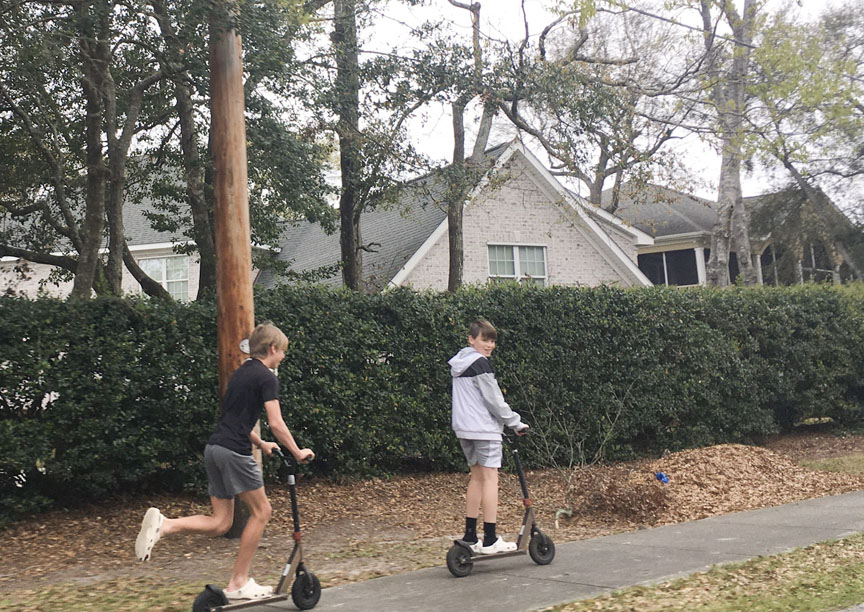
A couple of kids have fun racing each other on their scooters in the Ocean Drive area of North Myrtle Beach. They are also making sure to keep a safe distance between each other.
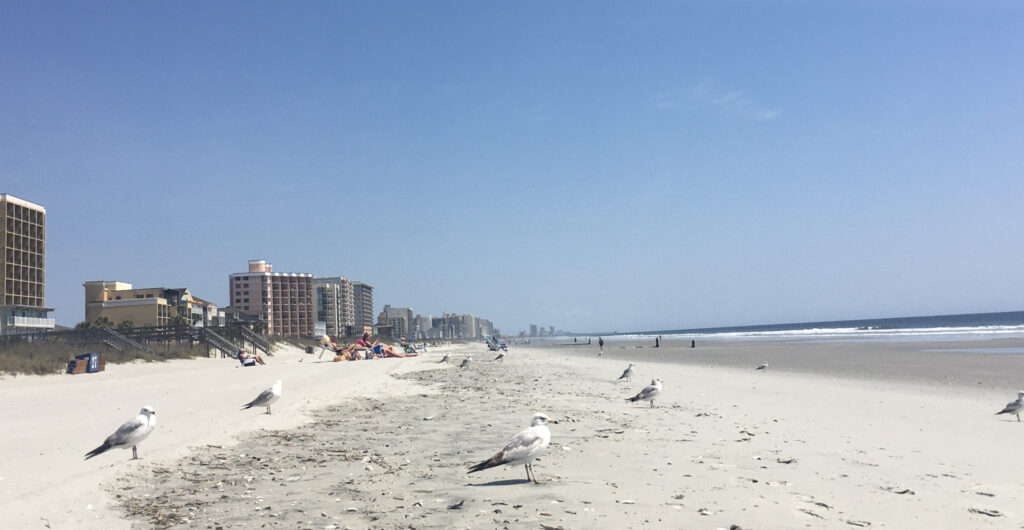
The scene at the beach has noticeably changed since the outlaw of all rentals until the end of April. Sparse, small crowds dot the coastline and even the seagulls are practicing safe social standing.
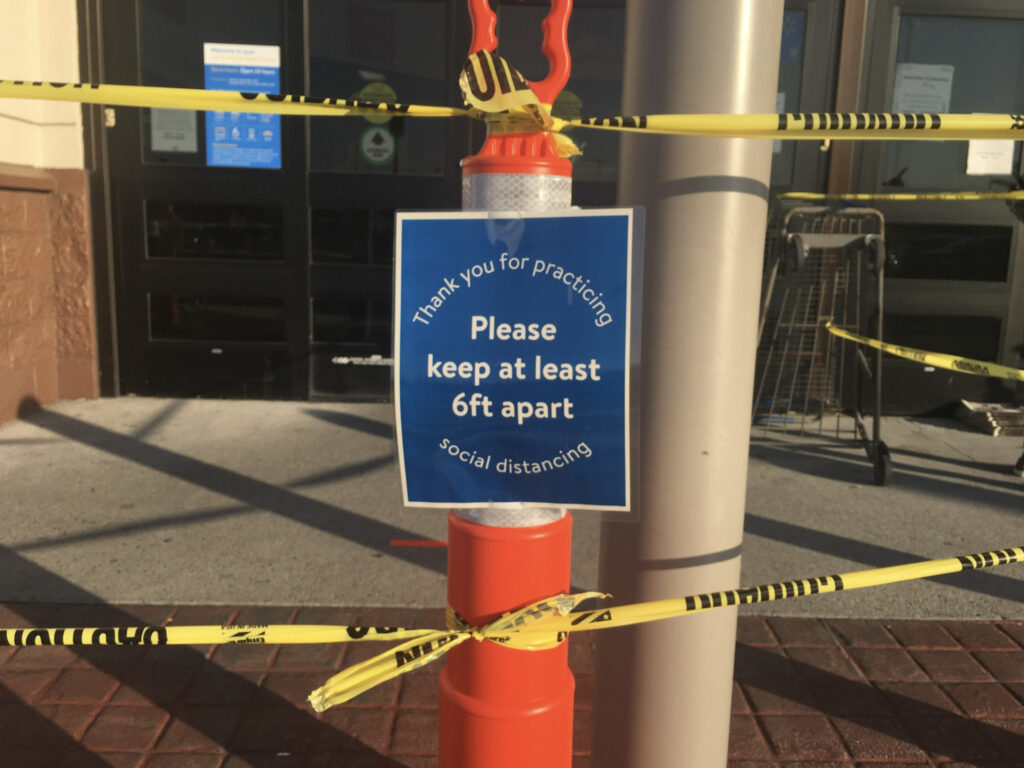
Signs displaying social distancing guidelines have begun to populate the few retailers deemed essential businesses that have been left open. Customers are being compelled to practice safe distancing and hygiene while shopping.
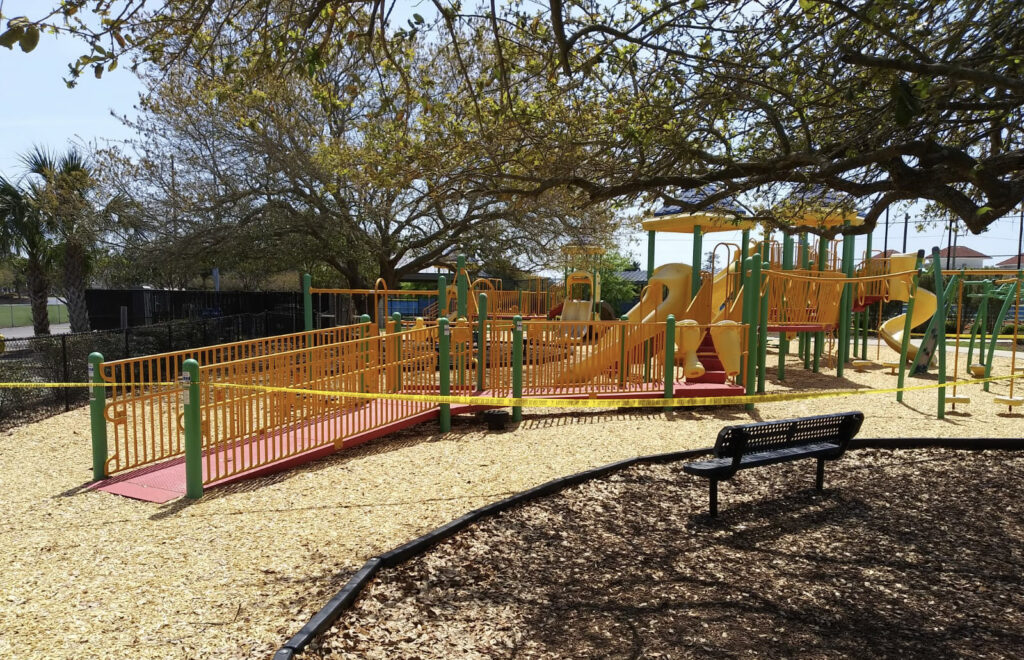
All playgrounds have been closed statewide in order to help prevent the spread of the coronavirus COVID-19. Police tape and signs notify residents that they can no longer use the equipment.
 North Myrtle Beach Times Serving our Community and the Grand Strand for over 50 years
North Myrtle Beach Times Serving our Community and the Grand Strand for over 50 years

